(CNN)Heir
to a construction fortune, business magnate, New York City tabloid
obsession, reality TV star and now, the Republican Party's presumptive
presidential nominee. For more than 40 years, Donald Trump has sought,
found and sustained a global celebrity. But few understand his per-sonal
story -- the source of the drive that has put Trump within touching
distance of the White House -- like journalist and writer Michael
D'Antonio.
In a wide-ranging conversation, the author of "The Truth About Trump," an unauthorized and comprehensive biography, D'Antonio took CNN.com inside the new GOP standard-bearer's untold journey.
This interview has been edited and condensed.
CNN:
Trump's wealth and business credentials have been central to his appeal
to voters. Was he born into great wealth, as critics note, or has that
been overstated?
Michael
D'Antonio: When people ask me about Donald's wealth and whether he's a
self-made man, I have to remind them that he was born into one of the
wealthiest families in America.
In
the 1970s his father was worth $200 million, so Donald will say, "Oh, I
got a loan of a million bucks from my dad," and that's true too, but he
also could access all that wealth in addition to all of his political
connections, so there's some who estimate that if he had parked that
money in a mutual fund he'd be just as rich today as he is now with all
the machinations of his business life, but hey, he kept us entertained,
so let him be a developer, let him be a serial entrepreneur. It's fun to
watch.
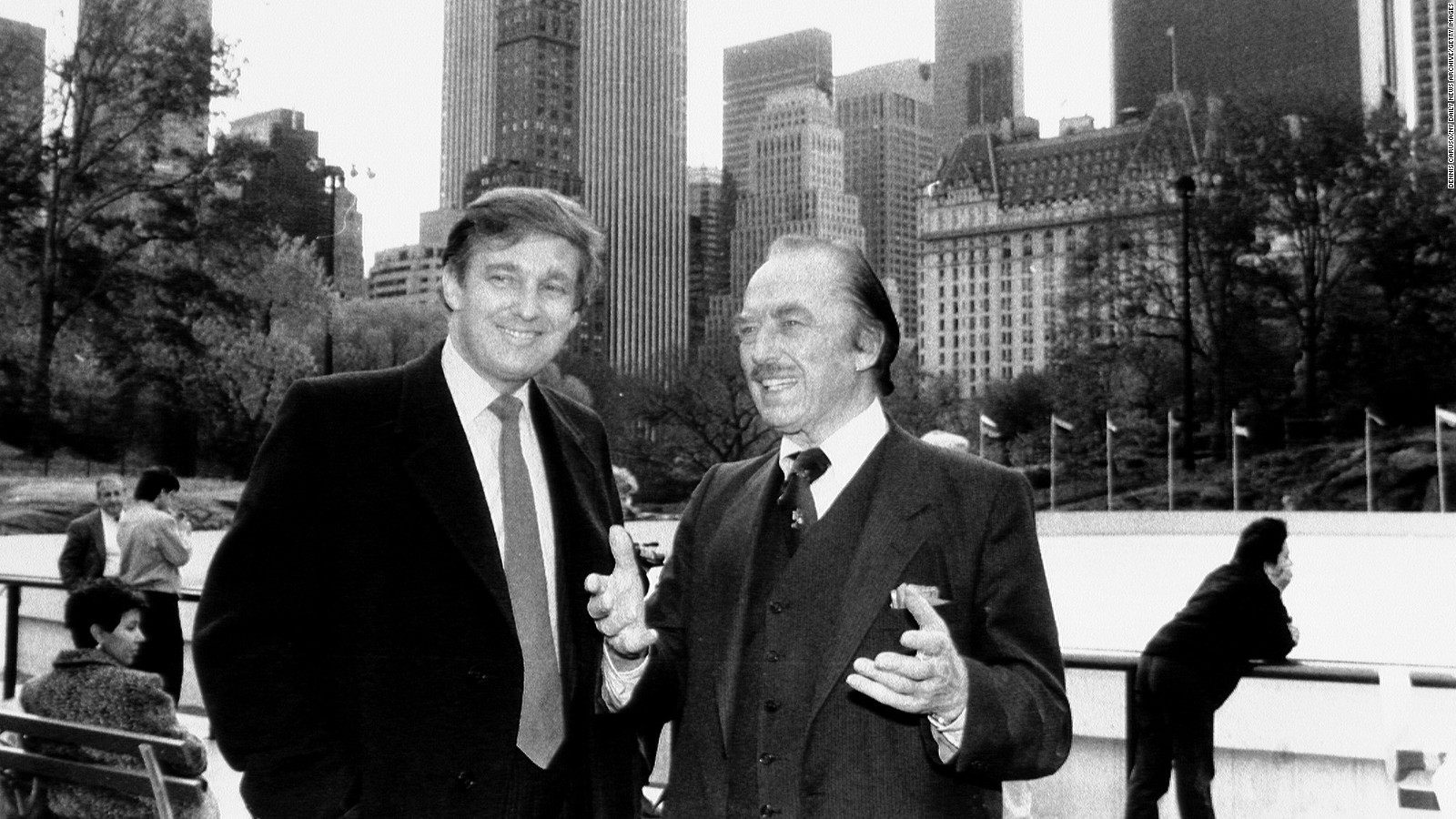
Donald Trump and father Fred Trump at opening of Wollman Rink.
Donald was born to a father of
German heritage. His grandfather actually came to America and made a
fortune out in the Yukon, where he served up meals and alcohol and beds
to the miners who were seeking their fortunes in the gold fields. His
mother is of Scottish stock. She was of Scottish stock. She came over in
the late 1920s.
At the
time, the Isle of Lewis, where she was born and raised, was very poor,
and they actually had lost most of the young men in a terrible incident
at sea where a ship carrying the troops home from World War I sank
almost within sight of the island, so many of the young women left for
North America hoping to find not only a new life and new opportunities,
but perhaps a husband, and she did.
She found Fred Trump.
How was Trump's life as a child and how much of his parents do we see in the candidate now?
Anyone
who would have known Fred, and I've met a few people who did, and also
know Donald, would see there's a direct line from father to son. Fred
was actually quite engaging, quite fun to talk to. Everyone said he had a
great personality, but he was also steely in his ambition, so he wanted
not only to be rich, but to be very rich, and he wanted to be powerful
and have powerful friends, so Fred, very early on, got involved in
politics.
He donated to
many, many candidates, and I think he demonstrated for Donald how to
work with relationships, how to play with people. He made sure to grease
the right palms, and that helped him become a developer in Queens and
Brooklyn who at one point controlled 16,000 apartments.
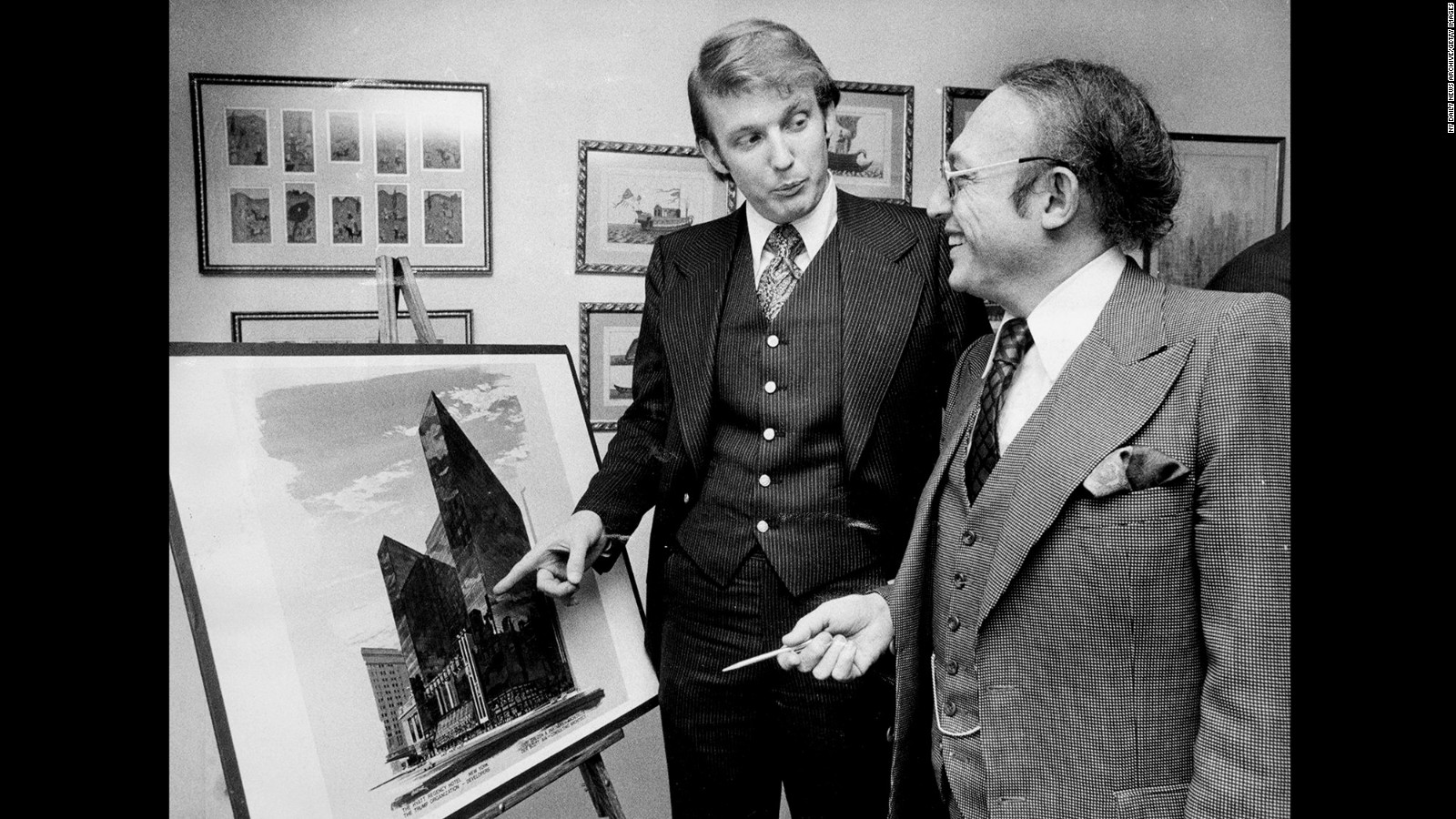
Donald Trump with Alfred Eisenpreis, the New York City Economic
Development Administrator, look over a sketch of new 1,400 room
Renovation project of Commodore Hotel in 1976.
The father was also incredibly
workaholic, so this is a man who got up before the family rose in the
morning and got home just in time for dinner and worked into the night.
On weekends he worked as well, and he told his kids, "If you want to
spend time with me, you come along to me and maybe you'll absorb
something as I do my work in the field."
His mother, quite poor in her beginnings in life, was a very theatrical person.
Donald
would describe her as someone who loved attention, could tell a story,
and at parties would be the center of everything. She was rather sickly
after Donald's last sibling was born, Robert, and I think Donald missed
out on quite a bit of mothering and I think he missed out on quite a bit
of attention from his dad, so when people see this very driven man
who's endless in his appetite for attention, I think what they're seeing
also is a kid who might not have got enough attention and has been
trying to make up for it ever since.
By
the time he was a young teen he was out of the house and enrolled at
the New York Military Academy. What was that like for him?
Donald's
exile from his family and enrollment in military academy at age 13 must
be seen as the formative event of his childhood.
Imagine
you're a 13-year-old kid in 1959 and all of a sudden your dad announces
on a summer day that you're not going back to school, you're going to a
military academy and it's 60 miles away, near West Point. You'll no
longer be with your family. You'll no longer be in this comfortable,
luxurious home. That's quite a jarring episode in Donald's life.
In
fact, I think he had to have felt somewhat abandoned as he was
deposited in this place. It was sort of like a private academy, but it
was nothing like people imagine when they consider Phillips Exeter or
Andover.
This was a place
where every kid was put into a scratchy, stiff uniform and handed some
Brasso and told to polish the belt buckle and shown a room and a
barracks, so at 13 he never would be in his family's home again until he
was a student at Fordham in college, and all the kids who went there
had trouble adjusting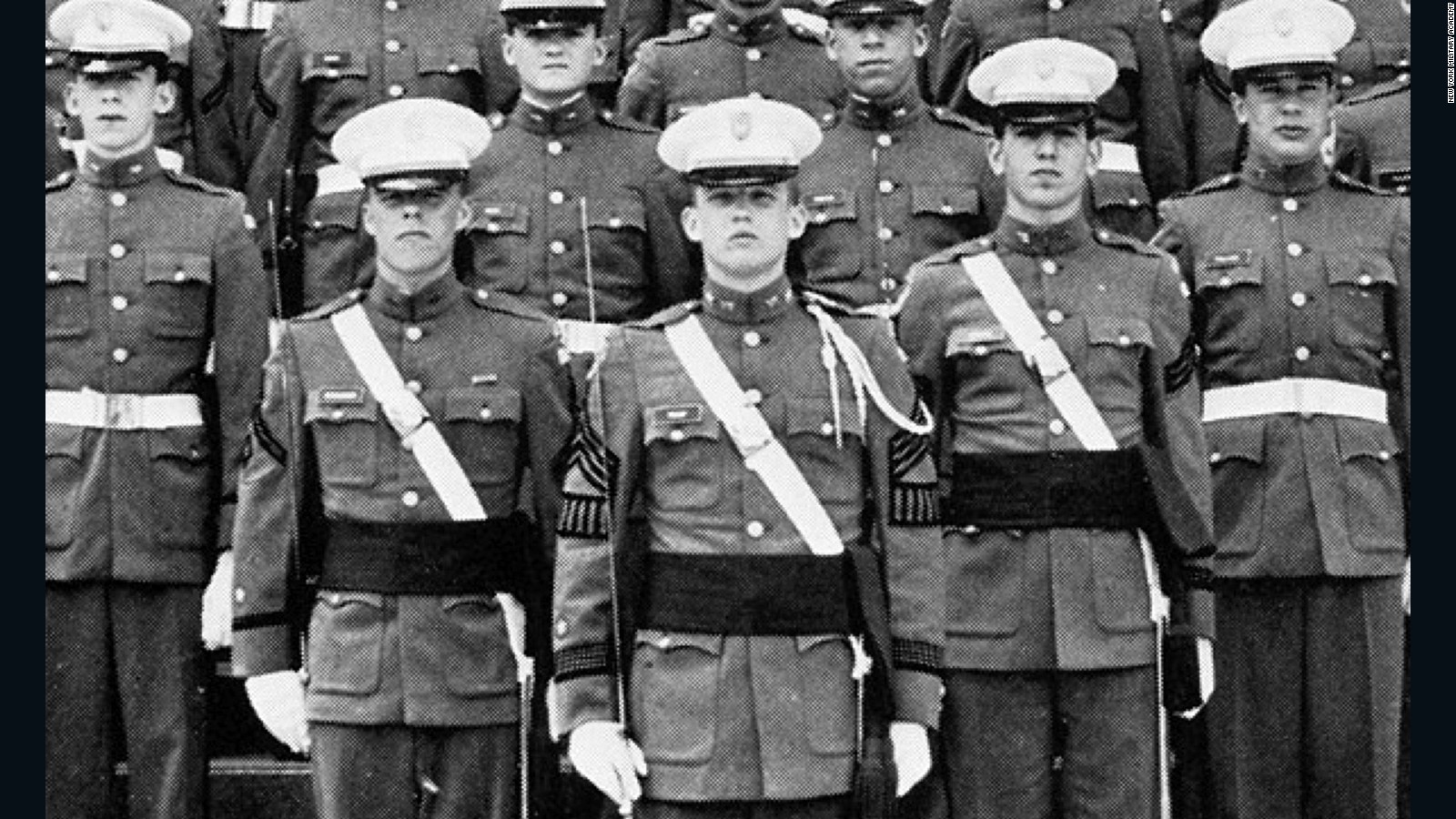 Donald Trump, center, from his days at the New York Military Academy.
Donald Trump, center, from his days at the New York Military Academy.
Donald's main influence at the
school was a fellow named Ted Dobias, and Ted had been in the Army in
World War II and literally marched up the length of Italy with the
American troops that took control of the country from Mussolini. In
fact, he saw Mussolini swinging from a rope. This guy comes back and he
gets a job at New York Military Academy and keeps it for life. Donald
described to me that these were men who would think nothing of punching a
kid and barked at them all day long. He adjusted, and I think he
adjusted by excelling at pleasing these fellows.
Dobias
told me that Donald was the most manipulative student he ever met, and
he said it both in a critical way but also in an admiring way, to
demonstrate that this was a guy who learned how to get what he wanted at
New York Military Academy.
When
most people think about a military academy, what follows is discipline.
Trump is not perceived as the most disciplined politician or public
figure. How do you square that -- is it fair?
It's
ironic to talk about Donald as disciplined when we think about the wild
statements he makes on the campaign trail and the rubber-faced
presentation that he makes. He really is a showman, but there actually
is a discipline behind it.
This
is a person who is single-minded in his pursuit of what he wants. You
get in Donald Trump's way and you're going to get run over, and I've had
people observe to me the straight-backed posture that Donald always
seems to affect when he's in public, and he's that way privately too.
He's very forward, very aggressive, but actually very disciplined. For
all of his wild talk, there's a point to it all.
In
fact, when people imagine that he's freelancing, I don't think he is. I
think he goes into public settings, has a few points that he's going to
make, and in fact, many of the things that he says are things that he's
been saying since the 1970s.
This
whole idea of America doesn't win anymore, other people take advantage
of us. In the '80s and '90s it was the Chinese and the Japanese who were
taking advantage of us. Today, in Donald's message, it's the Mexicans,
but the idea that someone's doing evil to the U.S. and we're somehow
suckers is a message he's been disciplined about delivering over and
over again for about 30 years.
When did Trump get his first taste of fame and how did he then sustain it over all these years?
Donald
has actually been pursuing attention and fame since the 1960s. This is
something most people don't know, but the first business activity ever
undertook was the production of a Broadway play. It wasn't a very good
play. It closed in about 10 weeks, but I think Donald's attraction to
show biz was evident then.
He
was even the leader of the Corps Cadets that paraded down Fifth Avenue
in the Columbus Day Parade when he was at the New York Military Academy,
so being out front, being noticed. In fact, it was so important to him
to be noticed during that parade that he complained and got his group
put ahead of the Girl Scouts to be first in the line of march.
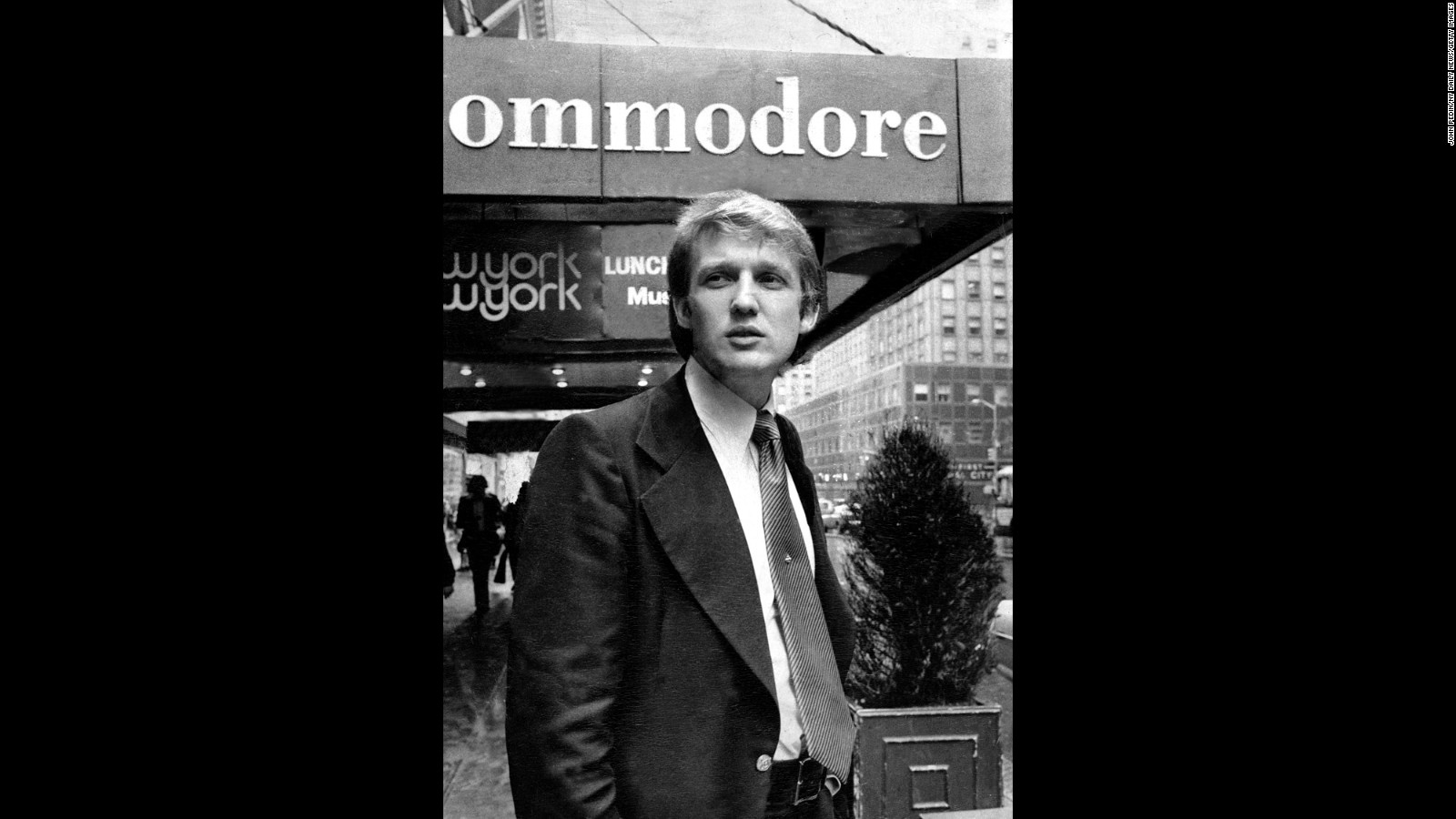
In 1976 Donald Trump announced plans to build a $100 million dollar
Regency Hotel. (Photo by John Pedin/NY Daily News via Getty Images
So Donald's always sought
attention, always been a rather theatrical character, and as he sought
success in New York City he realized that his name, his image, even his
appearance -- and he cut a pretty dashing figure around Manhattan in
the 1970s -- could be assets. He promoted himself in the press. Before
he had ever put two bricks together, Donald was in the New York Times as
a rising tycoon. How he was a success and a developer and a tycoon when
he hadn't yet built a single building is beyond me, but he pulled it
off.
In fact, he was on a
TV show in Manhattan as Manhattan's up-and-coming new developer, and
this was 1975. He hadn't done anything but he knew how to get attention,
and at every stage of his life, whether it was the tabloid newspaper
wars with Rupert Murdoch and the Post and the Daily News or it was
People Magazine or it was Robin Leach and "Lifestyles of the Rich and
Famous," Donald Trump was present, he was the star of the show, and
everybody knew his name.
This
guy just throws out ideas and sparks like nobody's business and gets
attention, and in a place like New York, which was the media center of
the world and still probably is, he was perfectly positioned to not only
establish himself locally, but eventually as a national figure.
There
was a time in the 1980s when repeated year-end polls ranked Donald
Trump among the 10 most admired people in America. You don't do that
without trying, so Donald had this strategy of seeking attention from
the beginning, doing what it takes to get it, and implementing the
strategy, and it's always worked.
So,
for a person who has sought the limelight and courted the press, he
projects a great disdain for reporters. How does he really view
journalists and the news media?
In
the current campaign, we've seen, at almost every event, Donald begins
by excoriating the press. He'll point them out, and the reporters will
have to stand there while the crowd turns and looks at these people he
describes as terrible people, the scum of the earth, they're really
horrible, and I think that the public, especially people who are true
Trump followers, love this. This is red meat to his loyalists.
In
fact, Donald doesn't think that. This is a pose. This is a way to set
up an enemy and also to discredit the press so that he becomes the
reliable source, so if Donald says, "These reporters are terrible.
They're not going to tell the truth. They're lying," then who is the
faithful Republican voter, or independent voter, to believe? Well,
they're to believe Donald Trump.
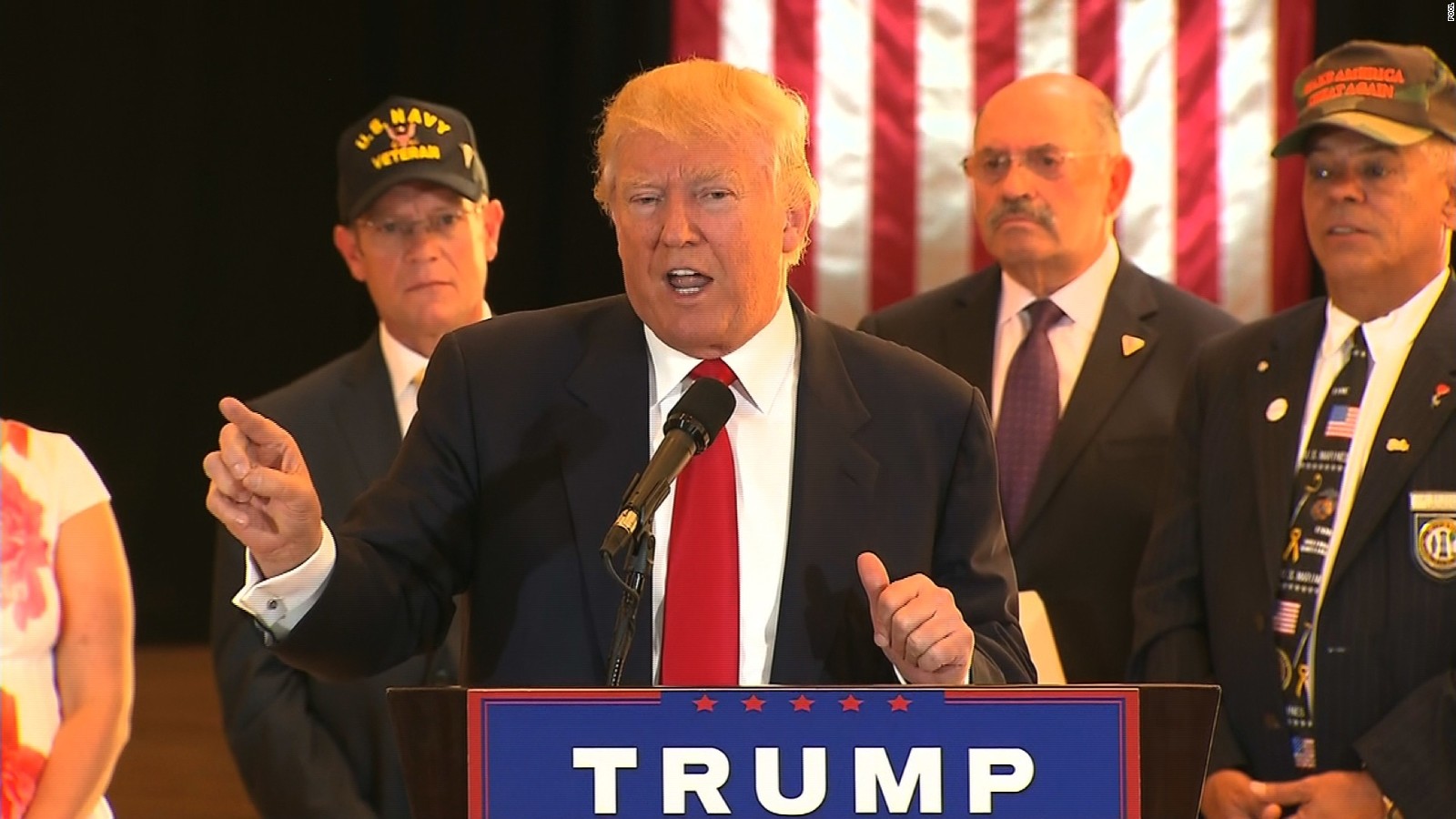
He doesn't hate the press. He
loves the press. The press has been the oxygen for his lungs and the air
that pumps up the balloon that is his ego. He started, every day of his
life before the campaign, by reviewing where he appeared in the media.
The
name Donald Trump would be circled on the pages or highlighted in
yellow, and he took a lot of pleasure from all the attention. I don't
think he's got the time to look at all the mentions now, but he's
certainly aware of everything that's being said, written, and noted
about him, and he takes pleasure in all of it.
By
all accounts, Trump has a very tight-knit family. His three oldest kids
spend a lot of time on the the trail with him. They're almost always
lined up behind him during important moments. Given his very high
profile divorce from their mother, does it surprise you how close they
are?
If you know
Donald Trump only through the tabloid headlines, including "The Best Sex
I Ever Had," which appeared in the 1990s when he was going through the
terrible scandal with Marla Maples and the breaking up of his marriage,
you would think that Donald might have a fractured family life. In fact,
his kids are pretty devoted to him.
Yes,
they were angry, especially Donald Jr. at the time of the divorce. I
think no kid would be able to weather seeing their mother and father on
the front page of the New York Post and the Daily News well. This is a
hard thing to adapt to, but in the Trump family there's this sense that
blood matters more than anything else, that you can trust your father,
your brother, your sister, maybe more than almost anyone in the world,
and they would be the people that support you when all else fails, so
his kids are very loyal..
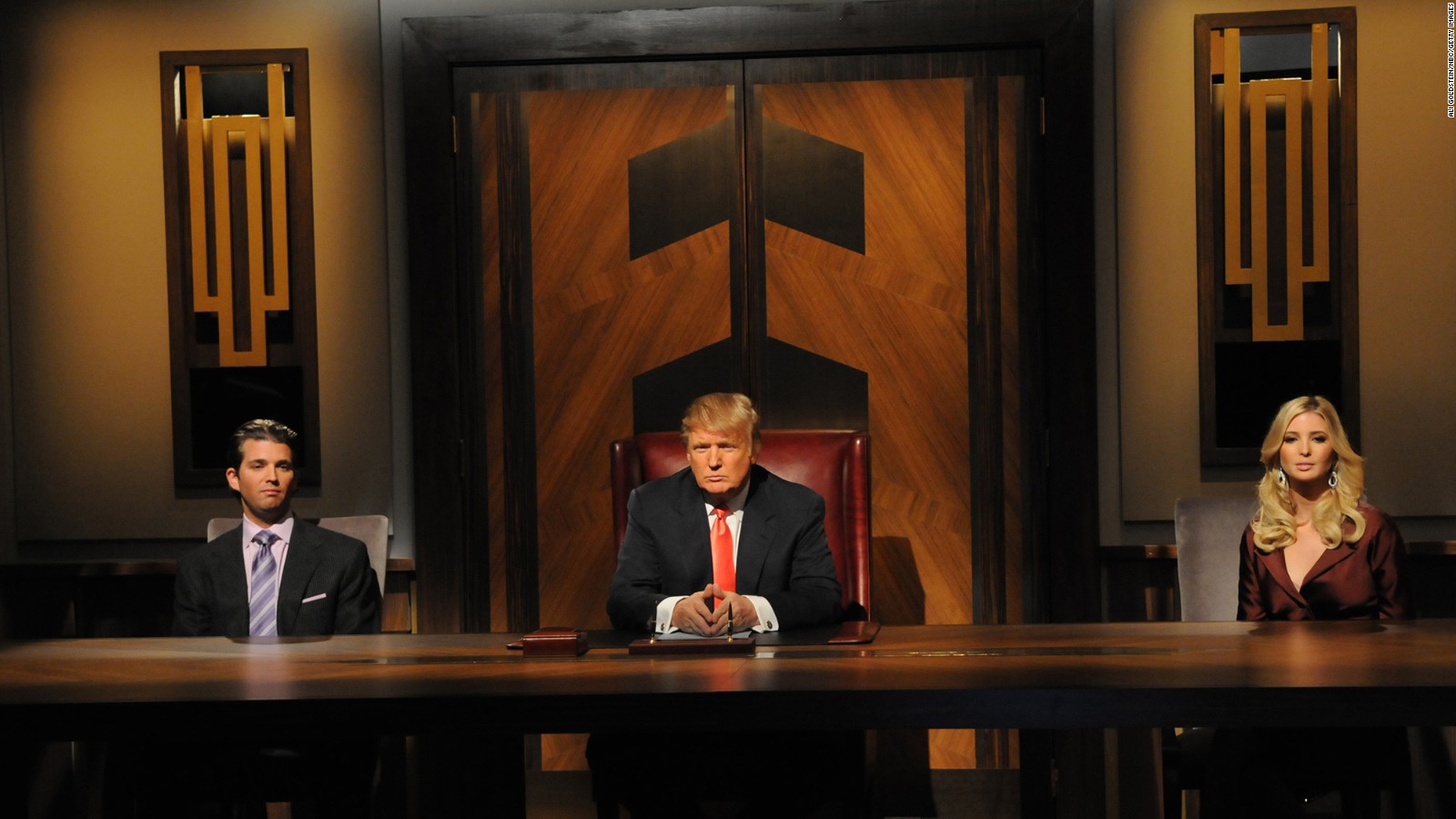
Donald Trump Jr., Donald Trump, Ivanka Trump on the live finale of 2008 season of The Apprentice.
I think that Donald was not the
most attentive father. Though I think he probably was more engaged as a
dad than his own father had been. He certainly didn't dispatch any of
his kids to military academies because they annoyed him, but their
attention, their care for him, is quite sincere, and some of it is
family, the natural support that kids would offer to a parent.
I
think they also anticipate the day when they're going to be taking over
the Trump empire and they're aware of the responsibility that comes
with it, and if they somehow denigrate him or criticize him I think they
would feel that they're also damaging the brand. They know he's a
divisive character, but they also believe in their family and they're
not going to abandon him.
When someone like Mark Cuban criticizes Donald for hiring his kids
and argues that he's not being a creative, bold businessman by relying
on family, I think he doesn't understand what the Trump brand really is.
Trump is about the family, it's about the name, and it's about
attaching the name to different products or pieces of property. They
license the name.
It's not
a lack of imagination that leads Donald to hire his kids. I think it's a
loyalty to the brand and the people he trusts the most.
Trump
has flirted with running for president for decades. He's teased the
media. A lot people thought it was just a stunt. Was there anything that
led to finally do it and why does he believe he's the man for the job?
When
we think about Donald as a political creature, and especially as a
person who aspires to the Oval Office, it helps to understand that he
really thinks of himself as the best person in the world.
This
is going to sound very strange to most of us, but he believes that,
almost genetically, he is gifted beyond everyone else who might aspire
to the presidency, so the idea that he would go from no political office
and no public service immediately to the White House is not outrageous
to him. I think it's natural.
In
the case of Barack Obama, I think he admired Obama's abilities to rally
the country. He told me Obama was once a good cheerleader, and believe
me, to Donald Trump, being a cheerleader is a meaningful thing. It's not
a thing that he says to denigrate someone. Trump is a cheerleader
himself, so he admires that ability to rally people and inspire them.
There had been a time somewhere between 2008 and 2011 when Donald saw
that it was to his advantage to become an Obama critic.
Now,
I think there was something inherently racist in the birther movement
that Donald came to embrace and lead. It's hard to deny that the very
first African-American president is somehow subject to all of this
intense innuendo and false suggestion that he wasn't actually an
American and not see that there's a bit of racial anxiety in all of
that, and long after other people had abandoned the birther cause Donald
held onto it.
There was an inevitable
collision set up by his birther activities and the fact that Obama is
not the kind of person who's just going to take it, so in 2011 at the
White House Correspondents' dinner, Obama made Trump the butt of most of
his jokes, and there's tape of him sitting there painfully taking it.
You could see that Donald was suffering. He was the object of ridicule,
and that's not something he takes lightly.
After
the Correspondents' dinner he said, "Oh, it wasn't so bad. At least he
was talking about me," things of that sort, but that was a cover. I
think Donald was seething, and probably on that night he decided he was
going to run. There's nothing that Trump would relish more than taking
the keys to the Oval Office from Obama's hand in January.
Donald is now devoted to it and he's going to pour himself into the task of avenging this humiliation.
The
birther campaign against Obama was not Trump's first dip into racially
charged politics. Race has really been in of the recurring themes in his
public life. You've spent time with him, followed him and studied him
-- is Donald Trump racist?
No
one can look into someone else's heart and make that call. I'm not
going to sit here and say, "Oh, he's an unmitigated racist," but he is a
person who's repeatedly chosen to side with the white resentment side
of an issue, and I'll give you a good example.
The
very first time Donald was quoted publicly talking about anything to do
with race revolved around the Justice Department's prosecution of a
complaint against the Trump organization in 1973. There had been many
reports made to city and state and federal officials that Trump
properties did not rent to black people, and an investigation was done
and it was discovered that staff at these buildings had been told to
redirect black applicants or to inform them that there were no
apartments available. So when the Justice Department notified the Trump
organization of the complaint, Donald's immediate impulse was to cry
reverse racism.
This is not the usual thing.
Other
landlords, big landlords like Samuel LeFrak in Queens, had been served
with the same complaint, and they had engaged the Justice Department in a
process of making things right. Instead, Donald sued the Justice
Department, alleging $100 million in damages, and his lawyer called the
Justice Department lawyers Gestapo using storm trooper tactics. This is
kind of the seminal moment for Donald and race relations, and he opted
to fight and to agitate and to complain rather than to work with others
to make equality and racial acceptance part of his company's process. In
the end, his countersuit was thrown out and the Trump organization had
to agree to certain changes that would make their apartments more
available to minorities.
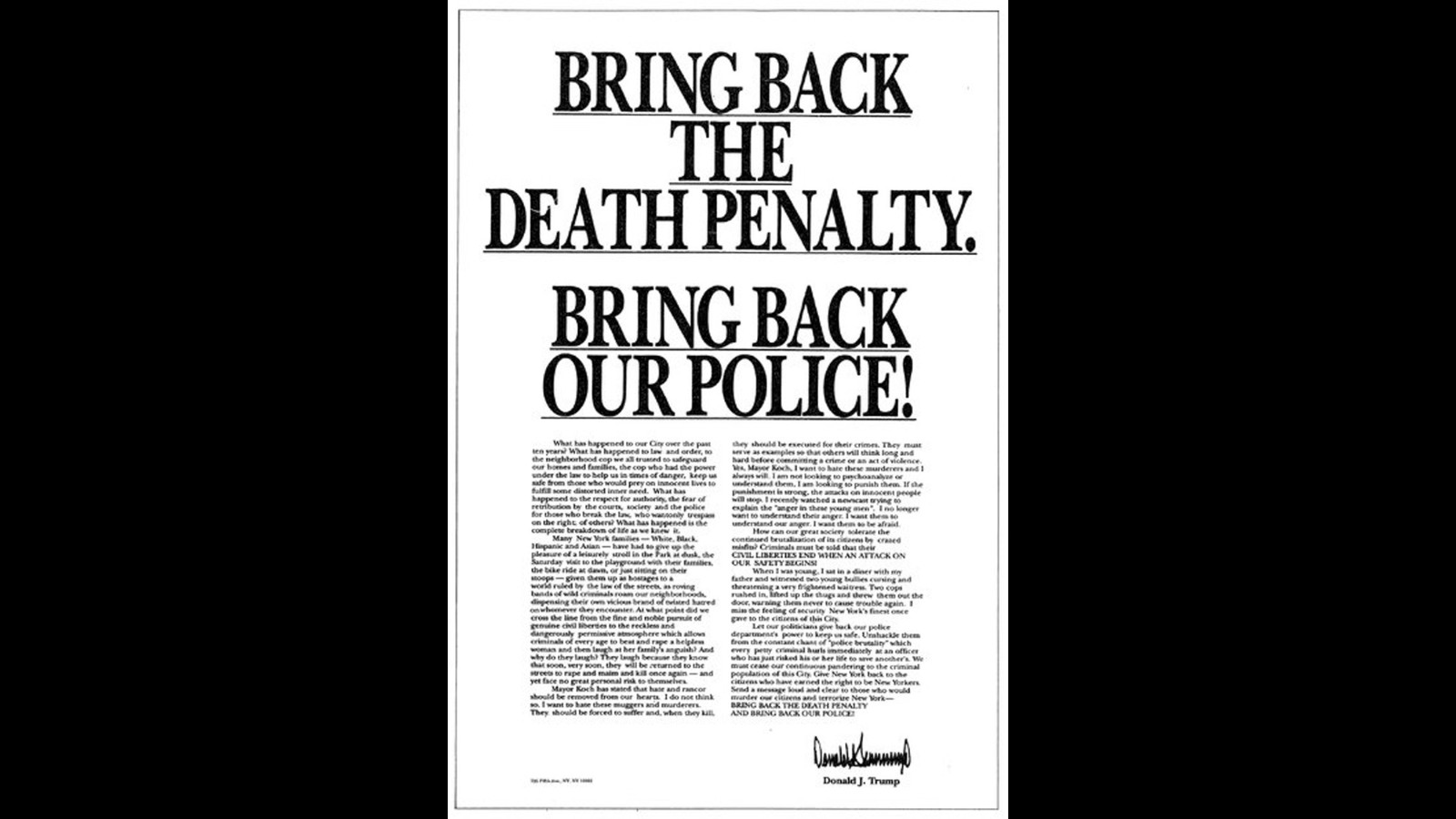
The next time Donald appeared
dealing with race was 1989. There was this terrible Central Park jogger
case where a young woman was assaulted in the park and almost killed and
headlines captures the case and people were terrified by what they
learned about her experience. Five young man, who were all minority,
were arrested and, we now know, railroaded into confessions. They were
all minors. They were denied access to their parents. Donald's response
to this was to buy a full-page ad in the newspapers saying, "Bring back
the death penalty." There was nothing more inflammatory that he could
have done than to buy a full-page ad, sign it Donald Trump, and call for
the death penalty in the wake of this case.
When
these men were later exonerated and freed, he insisted that they were
not good guys and somehow they didn't deserve the restitution that they
received because they had negative records, so Donald is again, in '89,
given the chance to do something either healing for the city, healing
for race relations, or provocative. He chose provocative.
In
the same year, Bryant Gumbel did a special on NBC about race and he
interviewed Donald Trump as a prominent American businessman, and
Donald's complaint at that time was, "Black people have an advantage,"
and he would much rather be an educated young black man than a white man
in 1989 America.
There
could be no more ridiculous statement about race relations that a
businessman could make. Black men were at a distinct disadvantage in
1989 and are still at a disadvantage when it comes to employment,
education, and other opportunities, but instead of working with people,
instead of trying to bridge differences, Donald tried to provoke
resentments, and it's happened again and again.
And
yet, he seems again to have a very loyal group of family and staff
around him. Politics aside, what about the man so attracts people on a
personal level?
For
all of his flaws and all of the provocation that he dishes out on the
campaign trail and things that he says that upset a lot of people,
Donald has a lot of positive qualities that come out, especially in
private.
When you're with
him, he's able to focus on the conversation at hand. He's rather
kindly. He smiles. He can make fun of himself, and with his staff you
can see that there's a loyalty and a mutual admiration that goes back
and forth among them.
Donald
has hired a lot of people and given them more responsibility and more
reward faster than, I think, any other major executive ever would, so if
you go into his organization as a gifted young person and you show that
you can handle an assignment, he'll give you a tougher one and a
tougher one, and he'll reward you if you succeed. I even think that if
you fail and he understands why you failed and the circumstances around
that failure he'll give you a second chance, and this is contrary to the
"you're fired" image that people get from "The Apprentice."
In
fact, one of the warmer stories about Donald is that a kid had a
Make-A-Wish granted to him, and the wish was to go to Trump Tower in his
little business suit with his little briefcase and be fired by Donald
Trump. The kid gets to the boardroom and Trump is there and he can't
fire him. He just can't bring himself to say the words.
Now,
I think that's rather beautiful and it shows a side of Donald Trump
that we may not see when he's at the microphone bellowing about his
opponents.
How do you think a President Trump would would govern?
I've not seen any evidence that, under pressure, Trump opts for moderation.
I've
seen the contrary. I've seen that, under pressure, Donald Trump doubles
down on what Trump does, and that is provoke, argue, and push ahead.
Now, there are some would say that that's what America needs, a person
who will provoke, argue, and push ahead, and in some areas perhaps
that's true, but I think in a complex world that's dangerous and filled
with peril, we might want someone who thinks a little more coolly.
The
remarkable thing is that the Donald Trump you see on the campaign
trail, in public, even on "The Apprentice," is essentially the real
Donald Trump. He's been creating himself for 40 years as a character to
present to the world. He now inhabits it fully. The man you see in
public is the man you're going to get if you elect him to the White
House.
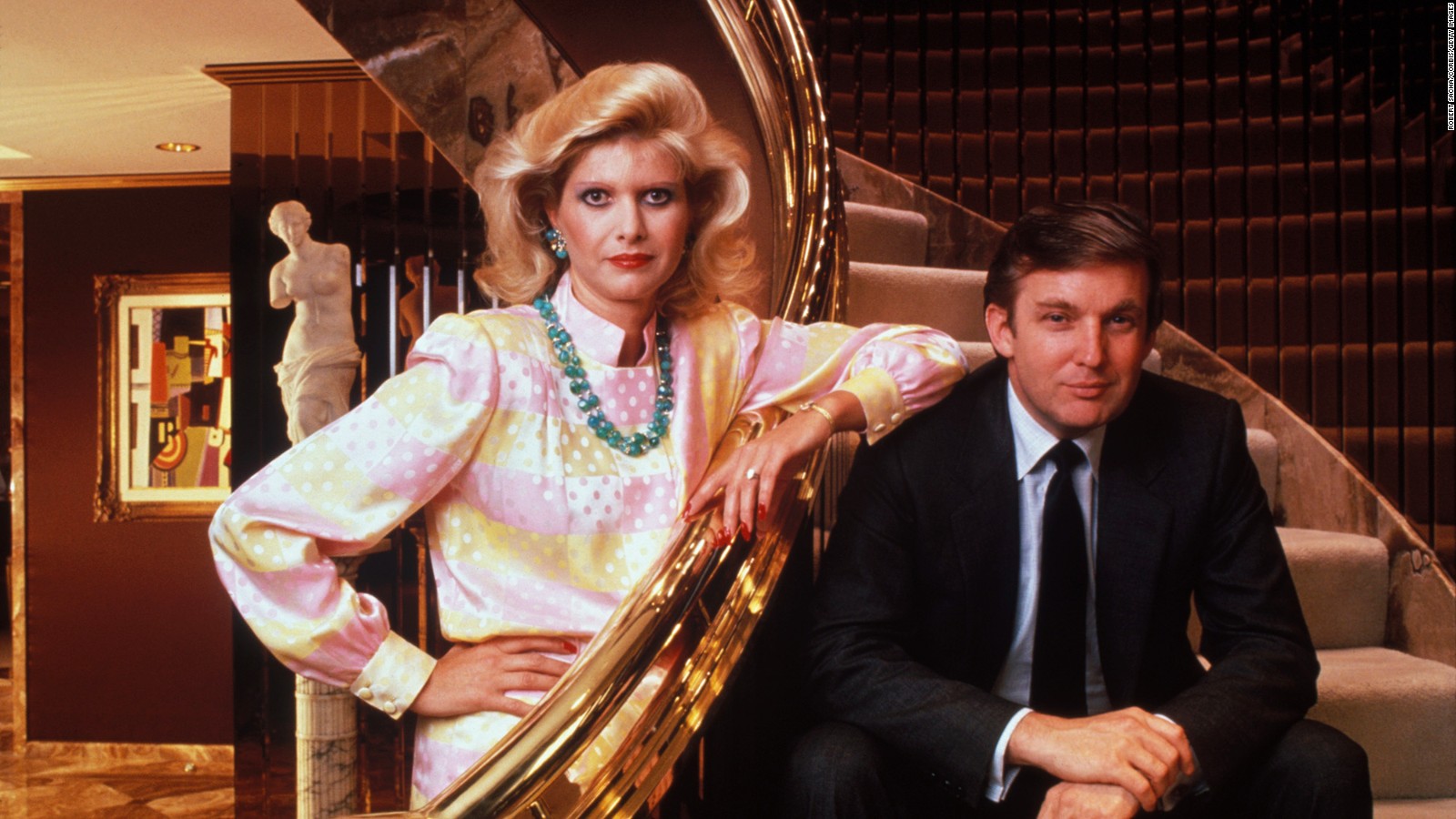
Donald and Ivana Trump in their home in Trump Tower.
This is a man who baffles even
those who have known him for decades. I'll give you a great example of
it. I interviewed Ivana Trump, who's known him since the mid-1970s, was
married to him for decades. She said at the beginning of our interview,
"Oh, I think I understand him. I think he's a little boy who didn't get
enough attention and has been seeking attention ever since."
But
when our interview was nearing its end, she interrupted me and said
she'd been thinking about that question and, in fact, she doesn't know
him at all. She couldn't figure him out, so if someone who's been
married to him, who's had three children with him, and has known him for
decades hasn't figured him out, I don't know how we're supposed to
figure him out, so this is a really difficult challenge for us.
Let's
look then at his political bloodline. We have a pretty good idea of who
is advising him now, but how about 20, 30 years ago? What school of
politics does he come from?
Besides his father, the man who had the most influence on young Donald Trump was Roy Cohn.
Roy
was famous in his own right. He was Joe McCarthy's right-hand man and
chief inquisitor during the Army-McCarthy hearings, which are famous or
rather infamous now as an example of prosecution by innuendo and
character assassination and one of the most disgraceful periods in
American life, and Roy was the leader of that, and he was disgraced, as
McCarthy was disgraced, and retreated to New York City where he was very
well-connected in politics and high society, and when Donald became a
young man, it was Roy Cohn that he turned to as a mentor.
Roy
introduced him around New York. He got him access to the private clubs,
and he became Donald's lawyer and mentor, so much of what Donald
practices today in terms of politics, and you can see it in the way that
he tries to flip issues.
A
good example is if I say something racially insensitive and people
start calling me a racist, I'll try to flip the issue around and say,
"Oh, no, you're the ones who are racist for raising the issue, for
noticing that I said something." This is classic Roy Cohn doublespeak
and it's the way that he operated, and this fellow was Donald's mentor.
In
fact, he was the mentor for Roger Stone, who is now Donald's friend and
has advised him in politics since the 1980s. There's a whole crew of
people who were attached to Roy Cohn, attached to, actually, Richard
Nixon and his campaign, including Paul Manafort, one of Trump's top
aides now.
All of these
people worked together, understood each other, and understood a way of
doing politics that was incredibly aggressive and no-holds-barred,
take-no-prisoner approach to politics, and it's Joe McCarthy to Roy Cohn
to Donald Trump.
Trump's slogan, "Make American Great Again" -- when do you think Donald Trump believes America was truly great?
I
think when we consider Donald's desire to make America great again, we
have to remember that he is the quintessential baby boomer. He was born
in the first year of the baby boom generation, 1946, and at every stage
of his life he sort of reflected the baby boomer ethos.
When
Tom Wolfe wrote about the "Me" generation in the 1970s, Donald was
really the leader of the me-centered narcissistic generation that he was
born into, and I think that for him and for many people of his age this
idea that the 1950s was ideal, a kind of "father knows best" time when
life was easy, orderly, predictable, is a romantic thing for him. And
you could extend that to the 1960s when, despite the political and
social turmoil, the economy was booming.
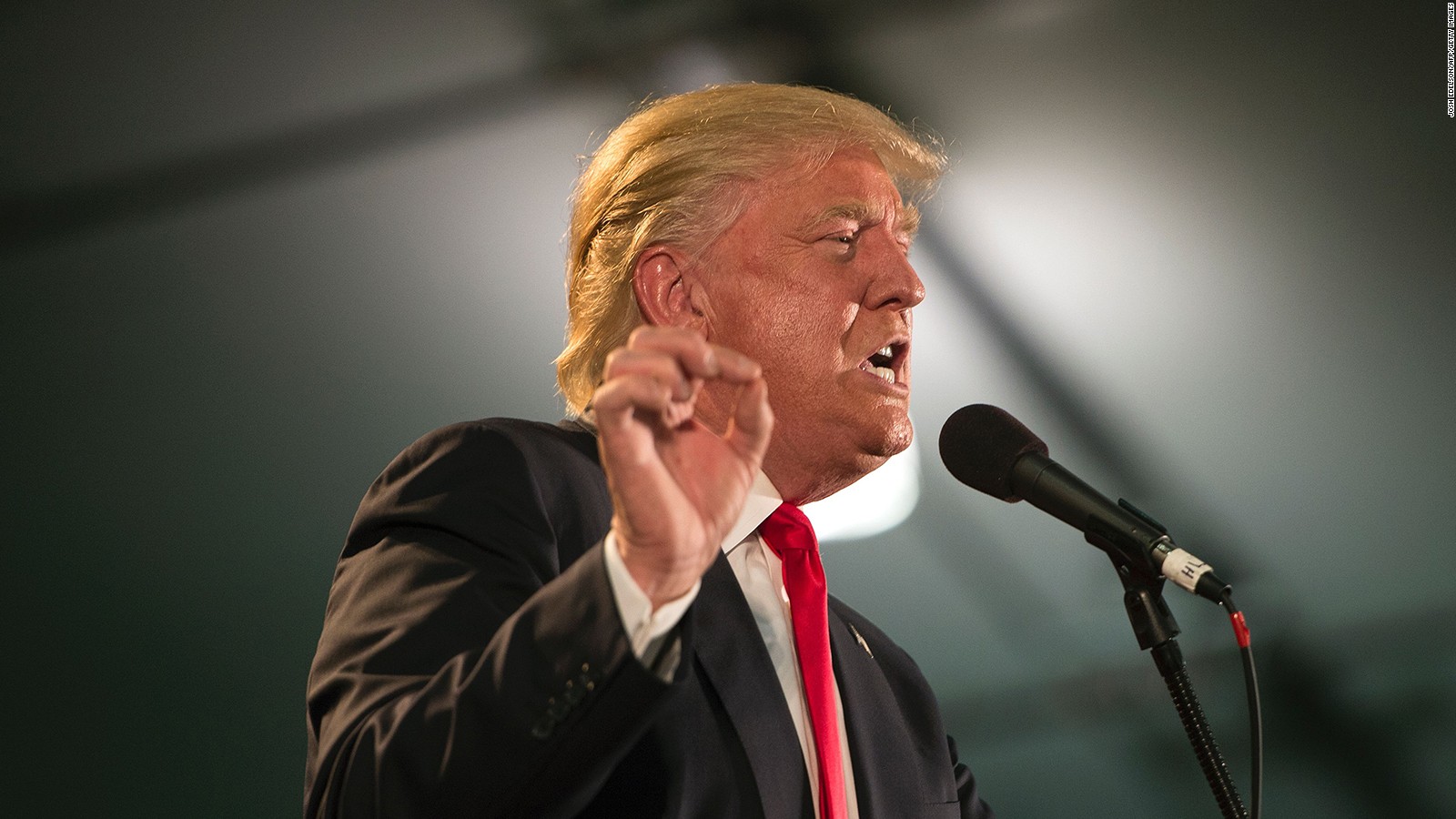
Republican presidential candidate Donald Trump speaks during a rally at
the San Jose Convention Center in San Jose, California on June 2, 2016. .
It was relatively easy,
especially compared with today, for a person to support a family on an
average middle-class wage, and that reality is gone, and I think that
when Donald talks about making America great again, he talks about going
back to that time, the 1950s, maybe a bit of the 1960s, when America
could be perceived as great if you were a white male person in the
middle class or wealthy.
For people who knew that life it may seem like that's when America was great.
Trump
is often called a bully, but he tends to argue that, no, he's just
responding to others. He's just "hitting back hard" against their
criticism. How does he, in his own mind, assess what makes a fair
target?
Donald is
the master of game playing, so he starts out every game by defining the
terms, and one of the things that he always claims for himself is, "I'm
a counterpuncher. I don't hit people until they hit me, but then I hit
them back 10 times harder."
Now,
the assumption here is that disproportional responses are acceptable.
"Oh, if you attack me by pointing out my hair is a little funny I'm
going to go after you a hammer and tong. I'm going to criticize
everything about you," and the fact is that Donald doesn't wait to be
attacked before he does. He loves the attention so much that he'll do
something like tweet about (the now 83-year-old actress) Kim Novak's
appearance when she gave out an award at the Oscars.
Now, Kim Novak had
been in seclusion for many years. She was a very self-conscious person.
She's not the kind of person who deserves to be humiliated when
appearing once on television for the first time in decades, so I noted
this to Donald, and I said, "So come on, what were you doing with that?
That really wasn't fair," and his response to me was fascinating. It was
like a kid getting caught with a hand in the cookie jar or a baseball
that's gone through a window.
He
said to me, "I don't think I got in too much trouble with that." Not,
"I'm sorry I did it." It was, "Oh, I didn't think I got in that much
trouble," so for him, what matters is not the fairness of something. Ten
times harder is justified in his mind. You criticize my hair, I'm going
to call you a big, fat, ugly person who's not worth the air that you
breathe. It's all relative, and it's all, is it fair to me? Does it mean
that I'm getting my ego stroked or somehow being ignored or diminished?
If you diminish Donald Trump, he's going to come after you hard.
Read more on Donald Trump by Michael D'Antonio: Trump the divider; Trump University and the four big questions.

Comments
Post a Comment